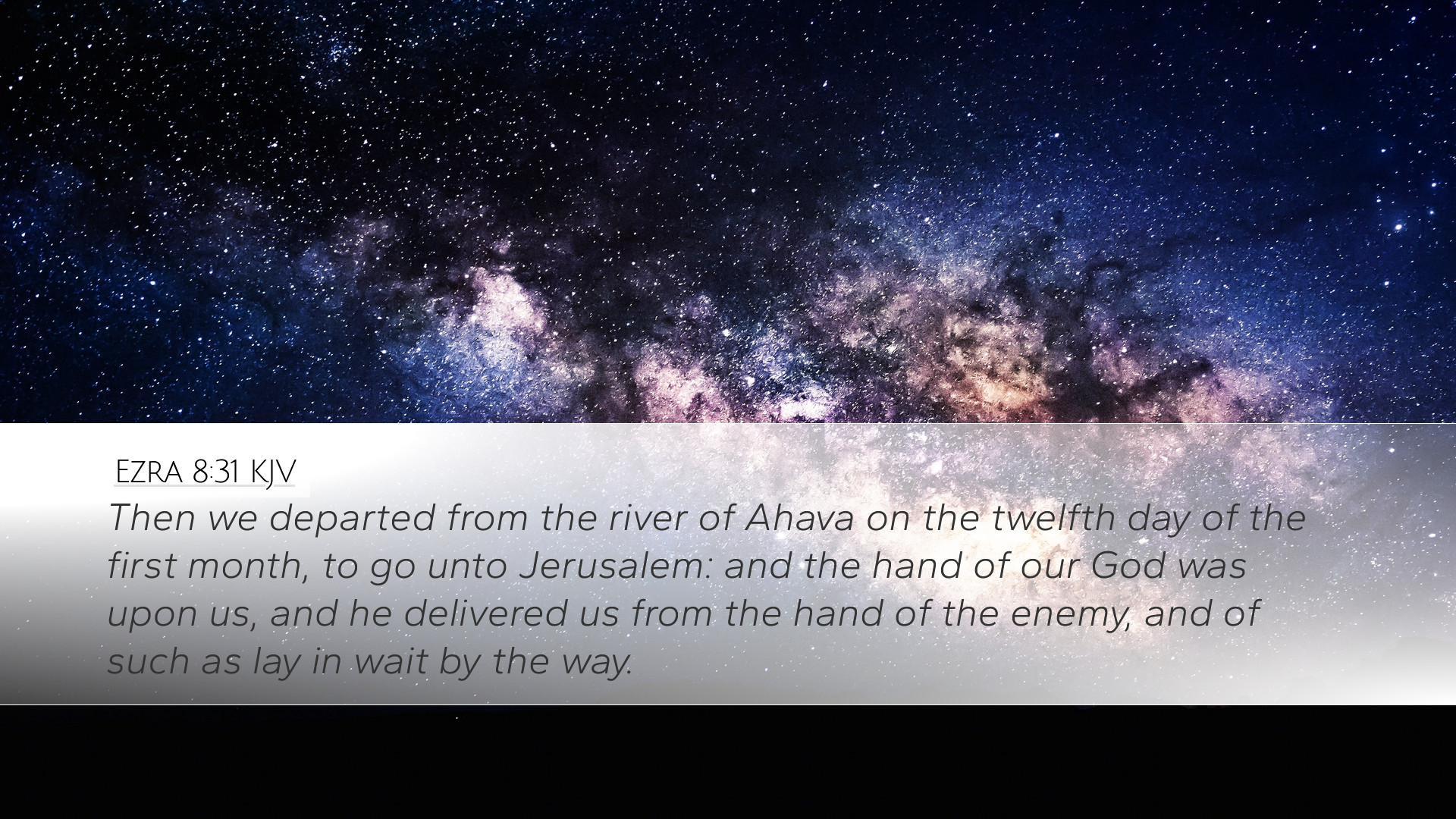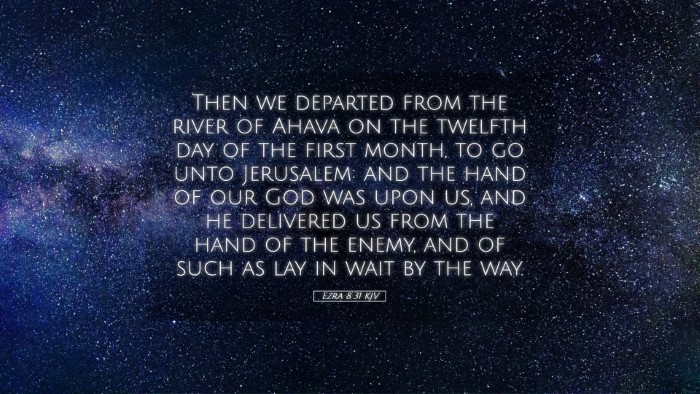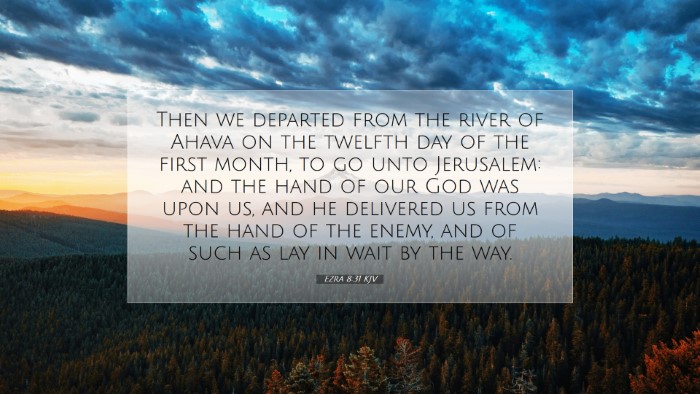Commentary on Ezra 8:31
Ezra 8:31 reads: "Then we departed from the river of Ahava on the twelfth day of the first month, to go unto Jerusalem: and the hand of our God was upon us, and he delivered us from the hand of the enemy, and of such as lay in wait by the way."
Introduction
This passage encapsulates a significant moment in the journey of Ezra and the people returning from Babylon to Jerusalem. The weight of this verse lies in its implications regarding divine protection, providential guidance, and the faithfulness of God amidst the perils of travel.
The Departure
Ezra mentions specifically that they departed from the river Ahava. This location was pivotal as it symbolized both a physical and spiritual departure. The journey mentioned here can reflect the transition from a place of exile and uncertainty to returning to one’s roots, the land promised by God.
Comments from Matthew Henry
Matthew Henry notes that the river Ahava is representative of the gathering of God’s people, prepared for their journey. He emphasizes the significance of the twelve-day journey which corresponds to their preparation and readiness to step out in faith.
Insights from Adam Clarke
Adam Clarke critiques the meticulousness that Ezra displayed throughout this journey. Clarke stresses the importance of preparation and divine favor, emphasizing that without the hand of God, their journey could have easily faced calamity. Clarke also highlights the twelve days not simply as numbers but as indicative of divine timing and God’s perfect plan.
The Divine Hand
In the latter part of the verse, Ezra attributes their safe passage to the “hand of our God.” This phrase is rich in theological significance as it denotes God’s active involvement in the affairs of men. It reassures believers of God’s omnipotence and sovereignty over life's circumstances.
Albert Barnes’ Commentary
Albert Barnes draws attention to the phrase "the hand of our God was upon us," stressing that divine protection is a central theme in the Christian life. Barnes argues that God’s hand can serve as a source of strength and security, guiding and shielding believers from potential dangers.
Furthermore, Barnes highlights that the reference to deliverance "from the hand of the enemy" signifies more than just protection during their travels; it exemplifies God’s ongoing work throughout history. The enemies may symbolize spiritual adversities, and this deliverance should encourage believers to trust in God’s leading amidst trials.
Lessons on Faith and Providence
The verse teaches many lessons, particularly the importance of faith and reliance upon God’s providence. Ezra’s faith in God's protection is a powerful reminder of the broader principle that when one walks in obedience to God’s commands, they can trust in His provision.
- Faith in God’s Guidance: This passage affirms that when undertaking a divine mission, reliance on God and His ways is paramount.
- Divine Providence: The verse reinforces the truth that God's hand is actively at work in the lives of His people, shaping occurrences to fulfill His promises.
- The Value of Community: Ezra's journey involved a community of believers, showing the significance of fellowship and shared mission in the life of faith.
- The Nature of Spiritual Warfare: The mention of enemies indicates that those who seek to fulfill God’s purpose will encounter opposition but need not fear, for God is their protector.
Theological Reflections
The mention of God’s hand can also provoke deeper theological reflections about the nature of God’s involvement in our lives. This introduces discussions about predestination, divine will, and human actions, which are pertinent in theological circles.
Furthermore, the contrast between the safety of God’s people under His protection versus the threats posed by adversaries acts as an allegory for the believer’s life. It illustrates the continual need for reliance on God within a hostile world.
Conclusion
In conclusion, Ezra 8:31 serves as more than a historical account; it acts as a clarion call to modern believers for reliance upon God during their spiritual journeys. The integration of insights from esteemed commentaries allows scholars and pastors to perceive the timeless relevance of scripture. This understanding can form the basis for deeper teachings about God’s faithfulness and the believer's response to His divine leading.


